 Petzlover
Petzlover Basset Hound is originated from France but Tenterfield Terrier is originated from Australia. Basset Hound may grow 7 cm / 3 inches higher than Tenterfield Terrier. Both Basset Hound and Tenterfield Terrier are having almost same weight. Both Basset Hound and Tenterfield Terrier has almost same life span. Both Basset Hound and Tenterfield Terrier has almost same litter size. Basset Hound requires Moderate Maintenance. But Tenterfield Terrier requires Low Maintenance
Basset Hound is originated from France but Tenterfield Terrier is originated from Australia. Basset Hound may grow 7 cm / 3 inches higher than Tenterfield Terrier. Both Basset Hound and Tenterfield Terrier are having almost same weight. Both Basset Hound and Tenterfield Terrier has almost same life span. Both Basset Hound and Tenterfield Terrier has almost same litter size. Basset Hound requires Moderate Maintenance. But Tenterfield Terrier requires Low Maintenance
 The Basset is a French dog bred in Great Britain in the late 1800s. The history of the Basset goes way back to ancient times as there have been discoveries of short legged dogs found in the catacombs of Egypt. These dogs also became popular during Emperor Napoleon III’s reign. Controlled breeding of the Basset began in France in 1870.
The Basset is a French dog bred in Great Britain in the late 1800s. The history of the Basset goes way back to ancient times as there have been discoveries of short legged dogs found in the catacombs of Egypt. These dogs also became popular during Emperor Napoleon III’s reign. Controlled breeding of the Basset began in France in 1870.
Hunting was popular with noblemen during the Middle Ages, and Francois Hubert bred hounds for this purpose. After his death, in his honor, the monks named the hounds bred at the monastery the St. Hubert's Hound. It is accepted that the St. Hubert's Hound is an early ancestor of many hound breeds that we see today.
French Bassets were imported into England in the 1870s. Everett Millais, thought to be the father of the modern Basset Hound, bred such dog to a Bloodhound to create a heavier Basset. The puppies were later refined with English- and French Bassets, and the first breed standard for the Basset Hound was made in the UK at the end of 19th century. To this day, many cartoon dogs are based on this extraordinary looking dog, and they also appear in adverts, a popular one being the logo for Hush Puppies, a shoe brand.
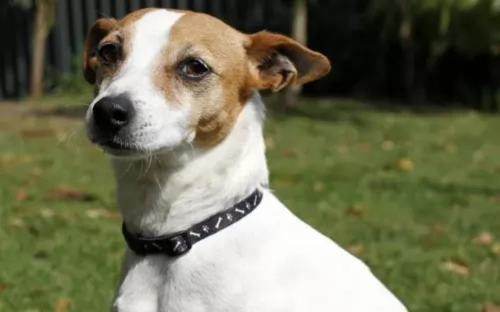 The ancestors of the Tenterfield Terrier came to Australia with the British and from them came this Australian breed. The English terriers were bred to be ratters on the ships to Australia. Today’s breed is a hardy, strong, athletic and agile dog. These first dogs were miniature Fox Terriers, bred for ratting. The miniature Fox Terrier was an established breed in the late 19th century in Australia with families and was know as a Mini Foxie. The breed became a steady presence in homes by the 1920’s.
The ancestors of the Tenterfield Terrier came to Australia with the British and from them came this Australian breed. The English terriers were bred to be ratters on the ships to Australia. Today’s breed is a hardy, strong, athletic and agile dog. These first dogs were miniature Fox Terriers, bred for ratting. The miniature Fox Terrier was an established breed in the late 19th century in Australia with families and was know as a Mini Foxie. The breed became a steady presence in homes by the 1920’s.
The breed might not have been named after the area of Tenterfield as many have guessed. Instead they may have been named after a breeder. The owner of the Tenterfield saddlery was called Tenterfield Saddler and he owned several of the breed. In 1990, Don Burke, a television personality suggested the breed be named the Tenterfield Terrier.
The Miniature Fox Terrier Club of South Australia. Now there were several clubs in Australia and a lot of disagreement about exactly what type of dog a miniature fox terrier was. Some did not think the name was legitimate, but they wanted recognition from the Australian National Kennel Club (ANKC). So, they became the Tenterfield Terrier Club of Australia in 1993. They were recognized by 2002.
Today the breed standard for the Tenterfield Terrier is different from the one for the Miniature Fox Terrier. They are now entirely separate breeds. In addition to the ANKC, the breed is recognized by the New Zealand Kennel Club but not by the AKC. It is also recognized by the American Pet Registry, Inc, the American Canine Registry and the Dog Registry of America, Inc.
 The Basset Hound is a scent hound, a short-legged breed of dog belonging to the hound family. He is renowned for his long body, his loose skin and the very characteristic long, droopy, low-set ears. This is also a dog that drools a lot. The Basset Hound stands only 33 – 38 cm in height. You wouldn’t call him a small dog as he is robust and solid, weighing anything from 18 to 30kg. The Basset Hound is also well known for his eyes, where the red of the lower eyelid shows. Their calm, serious expression is also a familiar and much loved feature of these dogs.
The Basset Hound is a scent hound, a short-legged breed of dog belonging to the hound family. He is renowned for his long body, his loose skin and the very characteristic long, droopy, low-set ears. This is also a dog that drools a lot. The Basset Hound stands only 33 – 38 cm in height. You wouldn’t call him a small dog as he is robust and solid, weighing anything from 18 to 30kg. The Basset Hound is also well known for his eyes, where the red of the lower eyelid shows. Their calm, serious expression is also a familiar and much loved feature of these dogs.
The Basset is a short-haired dog, but in spite of that he sheds constantly. Coat colors can vary but the most common colors are white, tan and black – a tri-color coat.
This scent hound is a friendly canine, outgoing and playful. He gets on well with children and other pets in the family, and training and socialization can make him even more amicable with them. He adapts easily to life in the city or in the country.
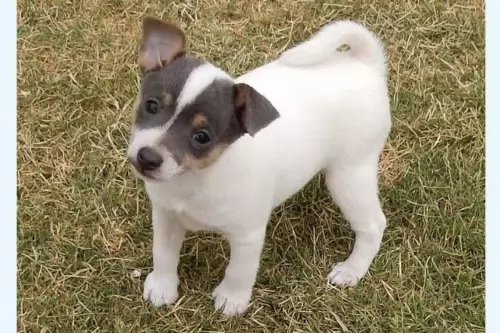 The Tenterfield Terrier is square and compact. He has a head shaped like a wedge and unusual in the terrier group. They have pricked ears and are predominantly white mixed with tan or black. They could also be tri-colored in black/tan and white or tan/liver and white. They have naturally occurring bob tails or docked tails. The nose is usually black unless the dog is liver colored, they have liver noses. The jaws are strong, and lips are tight with a strong neck.
The Tenterfield Terrier is square and compact. He has a head shaped like a wedge and unusual in the terrier group. They have pricked ears and are predominantly white mixed with tan or black. They could also be tri-colored in black/tan and white or tan/liver and white. They have naturally occurring bob tails or docked tails. The nose is usually black unless the dog is liver colored, they have liver noses. The jaws are strong, and lips are tight with a strong neck.
 The Basset's long body with his short legs give him a unique look. Add to that this breed is among the most even-natured and easy-going. It is why he makes such a cool pet. While he adapts well to both city living and country living, you can’t afford to let him become a couch potato. Sitting around and eating consistently will just make your best friend sick and increase your medical bills for him.
The Basset's long body with his short legs give him a unique look. Add to that this breed is among the most even-natured and easy-going. It is why he makes such a cool pet. While he adapts well to both city living and country living, you can’t afford to let him become a couch potato. Sitting around and eating consistently will just make your best friend sick and increase your medical bills for him.
The amicable Basset Hound is child friendly and because he isn’t particularly territorial, he will be alright with your other pets too. If you're looking for a wonderful friend who will be loyal to you, the Basset is waiting to fill the role of companion for you.
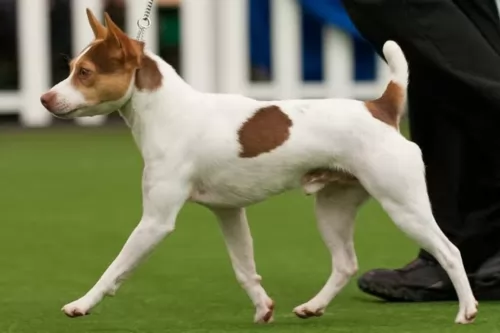 3.Adaptability – they need space even though they are small. They need a lot of exercise. They can adapt if they get another exercise. They can live in apartments and can play indoors as well as out.
3.Adaptability – they need space even though they are small. They need a lot of exercise. They can adapt if they get another exercise. They can live in apartments and can play indoors as well as out.
4.Learning ability – They are extremely intelligent, but they can be stubborn like all terriers.
 The Basset Hound is a pretty robust breed and with proper nutrition and exercise, can live up to 12 years of age but this particular breed is prone to some major health conditions.
The Basset Hound is a pretty robust breed and with proper nutrition and exercise, can live up to 12 years of age but this particular breed is prone to some major health conditions.
Cherry Eye is seen quite often in Basset Hounds. It is very painful because the tear gland tears away and it will require surgery before infection sets in. Also, glaucoma is an inherited eye disease that needs to be checked out as it can lead to blindness. The eye is red and the dog is constantly rubbing at it.
This is when the cartilage in the Basset’s joints don’t attach to the bone properly. It is known as osteochondritis dissecans or OCD. Be careful to stick to the recommended growth rate suggestions for feeding with a Basset puppy.
Basset Hounds are more prone to a heart condition known as dilated cardiomyopathy, or DCM. It is where the heart becomes large and weak so that it battles to pump blood to the body.
Other illnesses to look out for are Canine Hip Dysplasia and obesity.
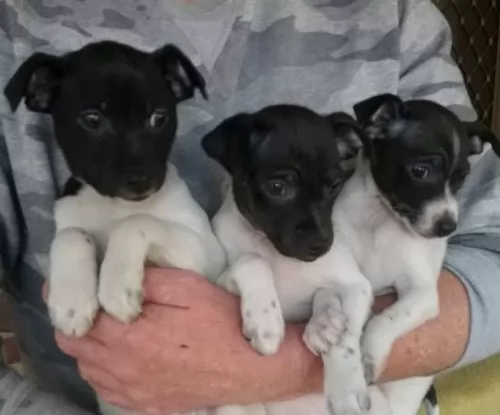 They are small in stature and because of their face they seem to have dental issues. The breed does not have a lot of health issues but deals with the same issues as many small terriers. Not all members of the breed are susceptible to these, but some are just like the Australian Terrier.
They are small in stature and because of their face they seem to have dental issues. The breed does not have a lot of health issues but deals with the same issues as many small terriers. Not all members of the breed are susceptible to these, but some are just like the Australian Terrier.
 Watching his diet. He will need quality, nutritious food and plenty of exercise.
Watching his diet. He will need quality, nutritious food and plenty of exercise.
It is also a good idea to get into the habit of brushing his teeth a couple of times a week with a special dog toothbrush and toothpaste. Never use toothpaste made for humans.
Clean his long ears and keep them dry. The vet will show you precisely how.
Be sure to see that he get his puppy vaccinations, and that you continue to give him vet check-ups when he shows signs of sickness.
He has low grooming needs but brush his coat twice a week to get rid of dull, loose hairs.
He is a smart, active dog with lots of energy so set aside time to have ball games with him and to get him out of the yard with walks.
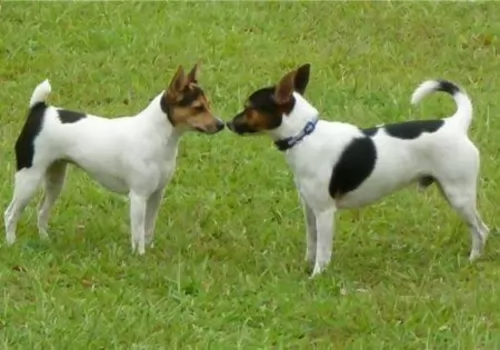 1.Feeding the puppy – Don’t overfeed but do feed high quality puppy food for small breeds and terriers.
1.Feeding the puppy – Don’t overfeed but do feed high quality puppy food for small breeds and terriers.
2.Feeding the adult – This is an active breed but don’t overfeed. Feed a high quality adult dog food for terriers or small breeds. Feed 2 times a day.
4. Games and Exercises – The breed has a high energy level and needs a lot of exercise. He is a terrier and loves to “go to ground”. Play activities that allow him to do that are best. He plays barn hunt, lure coursing and terrier specific competitions.